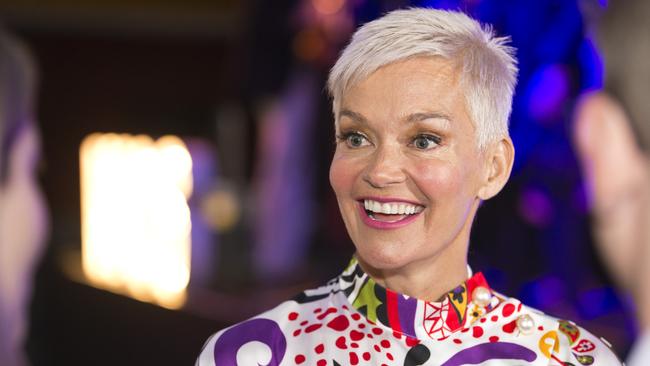We’re not as keen on free speech as we pretend

The idea that there is not enough free speech is mainstream in the liberal media. A recent Economist cover story warned of a free speech “threat from the illiberal left”.
A new survey commissioned this week by The New York Times finds that only 34 per cent of Americans believe everyone “enjoys free speech completely” and 84 per cent believe that “some Americans do not speak freely in everyday situations because of fear of retaliation or harsh criticism”.
In Britain, we may soon have a law to deal with it. The authors of the Online Safety Bill introduced to parliament last week warn of “toxic online environments … negatively impacting a user’s ability to express themselves online”.
But the confounding thing is that the threat to free speech comes from free speech. Never before in history has there been so much of it. Open TikTok or Twitter and there it is, a riotous farmyard of unrestricted speech, screaming, honking and vituperating all over the place. Before the internet, most people’s speech was free in a way that was essentially irrelevant. You could say what you liked to who you liked but most people struggled to find more than ten people to say it to.

Consequential free speech – the tens of thousands of readers you get with a newspaper column or even the hundred you might get preaching to a congregation in church – was rare. A vanishingly unusual privilege. This free speech was of course imperfect. Newspapers and churches do not employ just anyone to say just anything. As George Orwell wrote in an unpublished preface to Animal Farm, “At any given moment there is an orthodoxy … A genuinely unfashionable opinion is almost never given a fair hearing, either in the popular press or in the highbrow periodicals.”
But now, with enough dedication or viral luck, almost anyone can reach thousands or millions of people. It should be the heyday of heterodoxy. But, to put it mildly, this new form of mass free speech has not turned out to be a paradise of intellectual exploration and the good-natured exchange of ideas. It is extremely conformist. Ferocious criticism is unleashed on anyone deviating from the handful of competing orthodoxies that have come to dominate online. And because most people don’t like ferocious criticism or don’t care enough about their opinions to face it down, they stay quiet – as The New York Times reports.
This is a problem for advocates of free speech because ferocious criticism is supposed to be what we’re for. As Isaiah Berlin wrote in his Four Essays on Liberty, “we may argue, attack, reject, condemn with passion and hatred but we may not suppress or stifle, for that … is tantamount to moral and intellectual suicide”.

But what happens when condemning “with passion and hatred” amounts to stifling? Here is the free speech paradox. And here is why the Online Harms Bill proposes the apparently eccentric step of protecting free speech by restricting free speech. The legislation provides for restrictions on “harmful speech” (anything which causes “psychological harm amounting to at least serious distress"), which range from obligations on social media companies to suppress certain posts in various ways to “imprisonment”.
But the problem is obvious. What if thousands of people condemning you “with passion and hatred”, just as Berlin advises, result in “serious distress” and a “negative impact” on your “ability to express yourself online"? Whose free speech has priority? This paradox is related to a larger paradox which is that nobody likes free speech as much as they say they do. The notion of speech causing “distress” is not fanciful. It doesn’t even take passionate condemnation. Humans simply don’t like different opinions. When the neuroscientist Sarah Gimbel presented 40 people with evidence that their strongly held political beliefs were wrong, the response she measured in their brains was “very similar to what would happen if, say, you were walking through a forest and came across a bear”.
A survey conducted last year by Ipsos Mori found that while respondents overwhelmingly claimed they supported free speech, when confronted with specific controversial statements, that theoretical support tended to crumble. Conservatives were uncomfortable with insults to national symbols, progressives with insults to minority groups.

Most people, when they talk about free speech, mean they want it for themselves not their enemies. The “cancel culture” debate divides on these lines. Those who claim cancel culture doesn’t exist tend to believe that social media mobs are merely ordinary people providing legitimate criticism to those in the media with too much free speech. “I like to think of it as consequence culture,” as the progressive writer Roxane Gay put it.
Those of us on the other side of the debate worry that people who may be individually powerless can form very powerful mobs which may be more dangerous to free speech than almost anything else.
Unfortunately, the point of a paradox is that there is no way out. We will probably end up with less free speech, whether the government restricts it or social media mobs do. Almost every society in history has had powerful taboos and restrictions on free expression. The unprecedented freedom of the last few decades – the era that divides blasphemy laws from Twitter mobs – may turn out to have been a historical anomaly.
The Times







The “free speech crisis” (the problem of “cancel culture") is also a free speech paradox. The paradox is that there is simultaneously too much free speech and not enough.